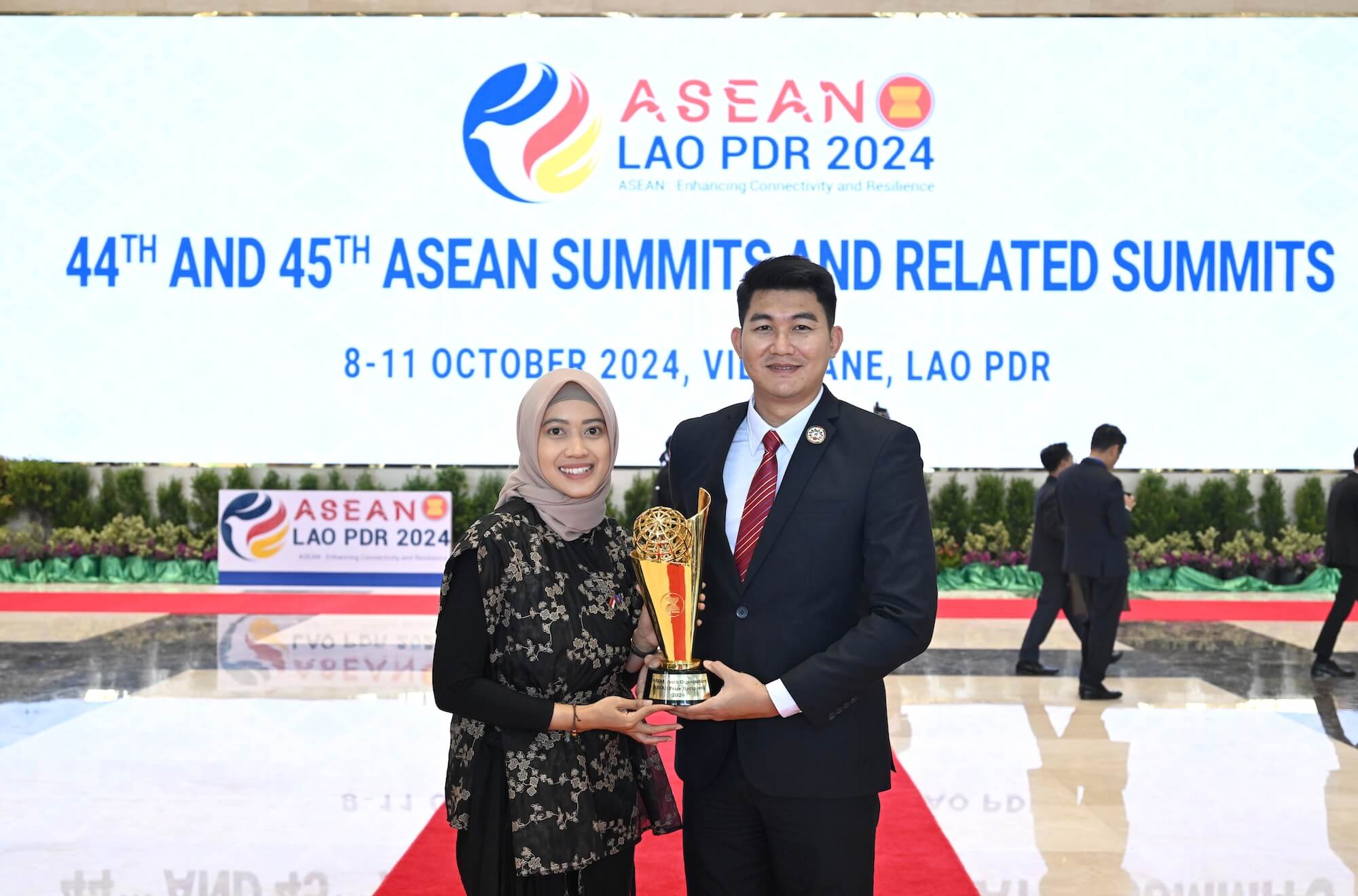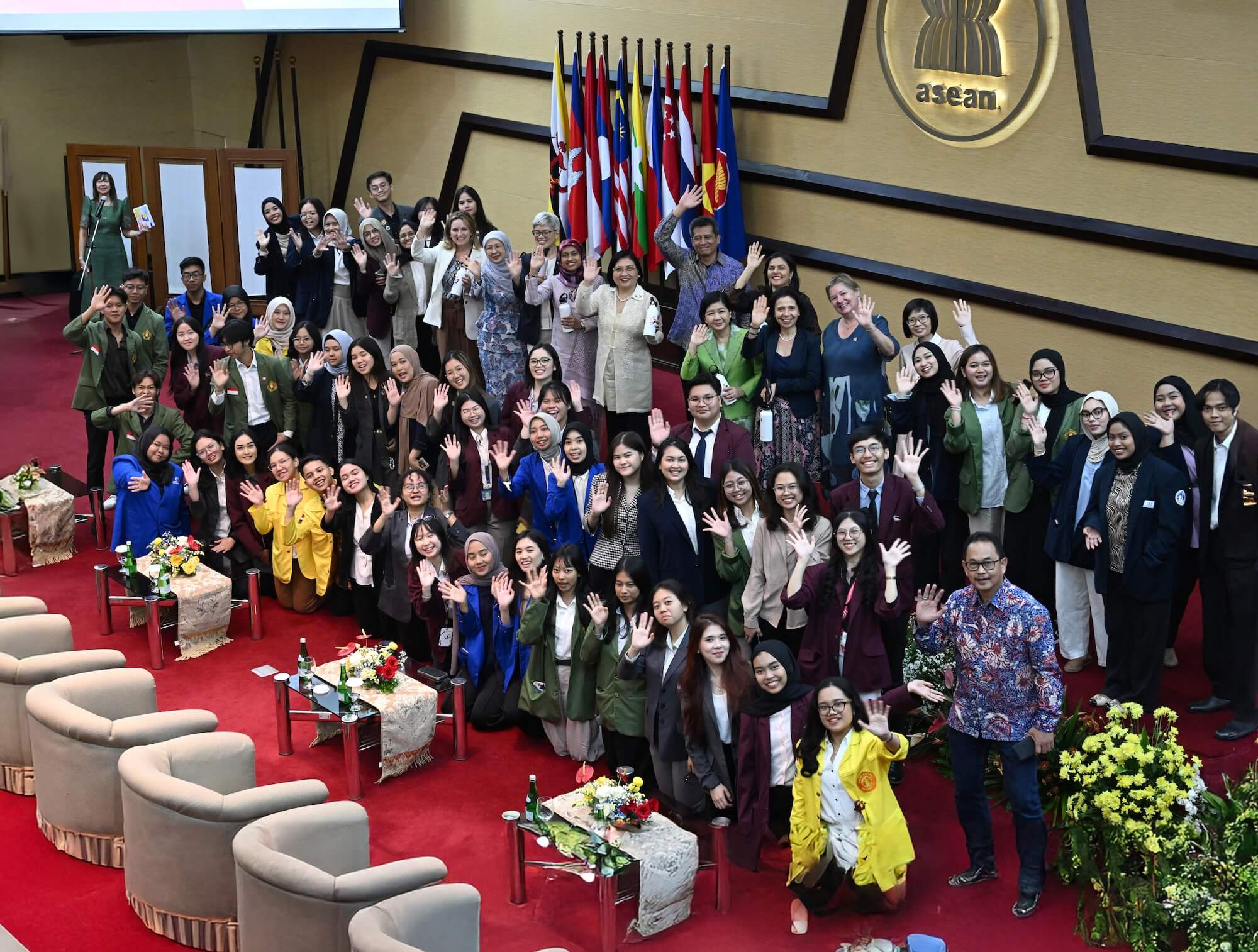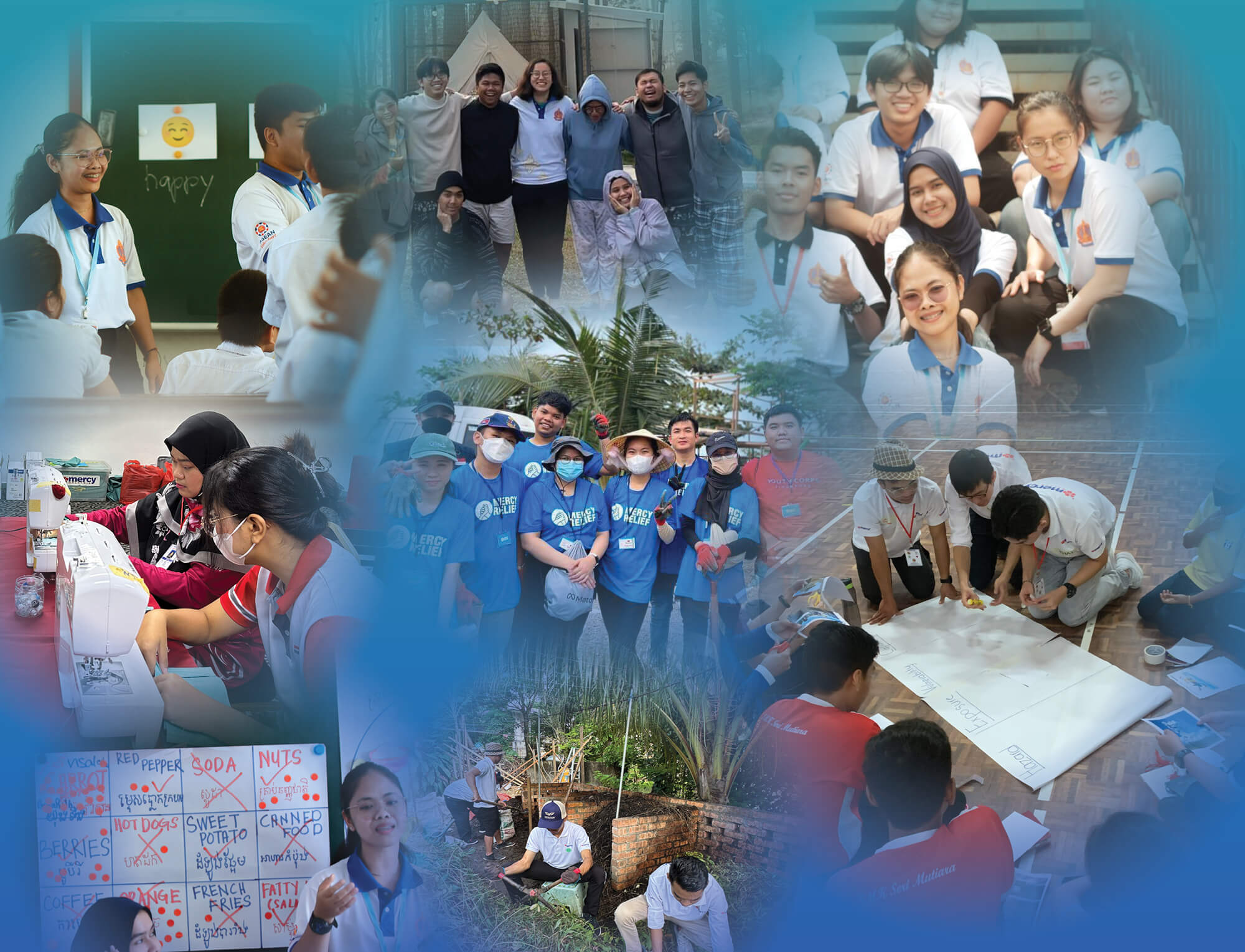
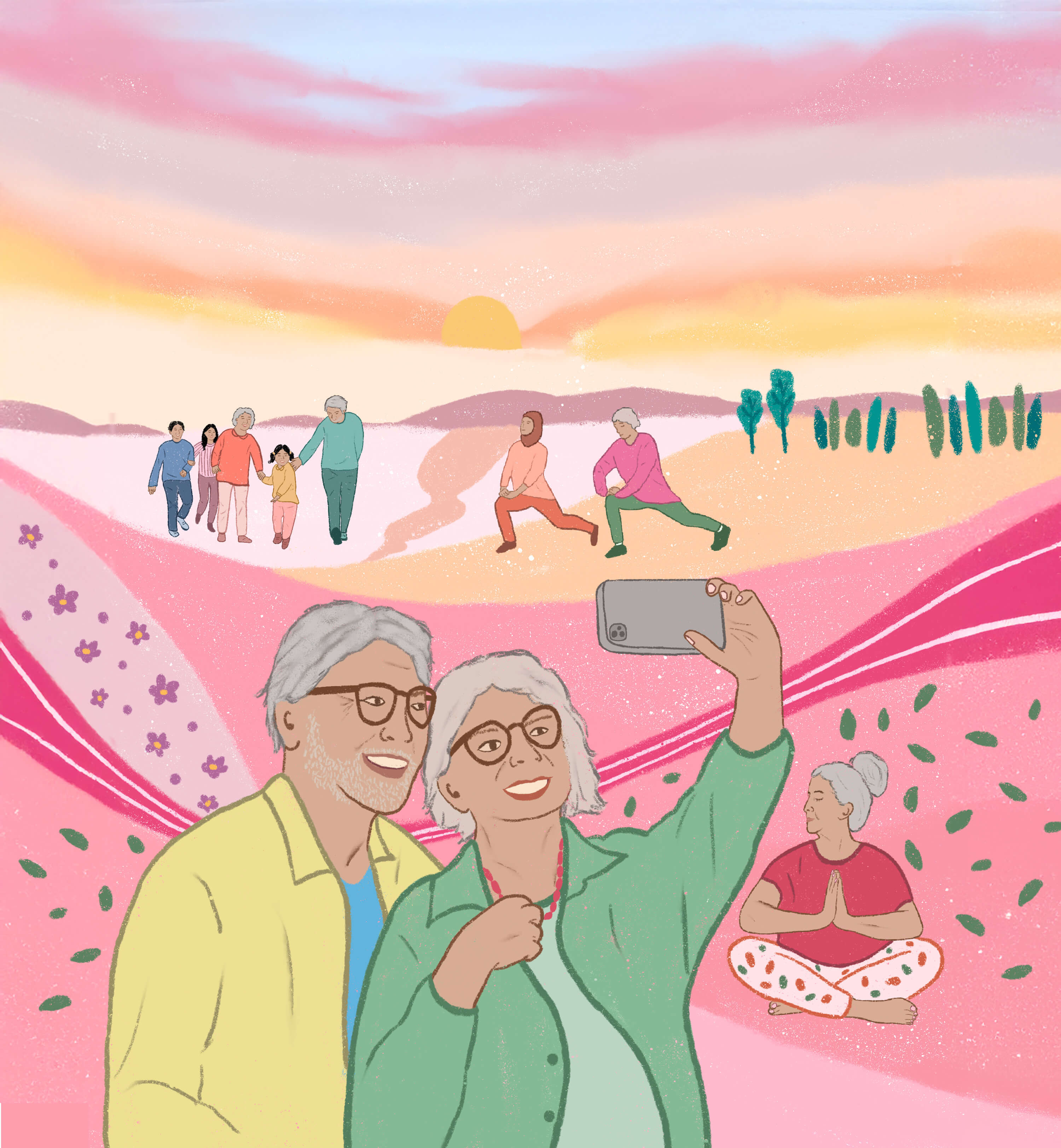


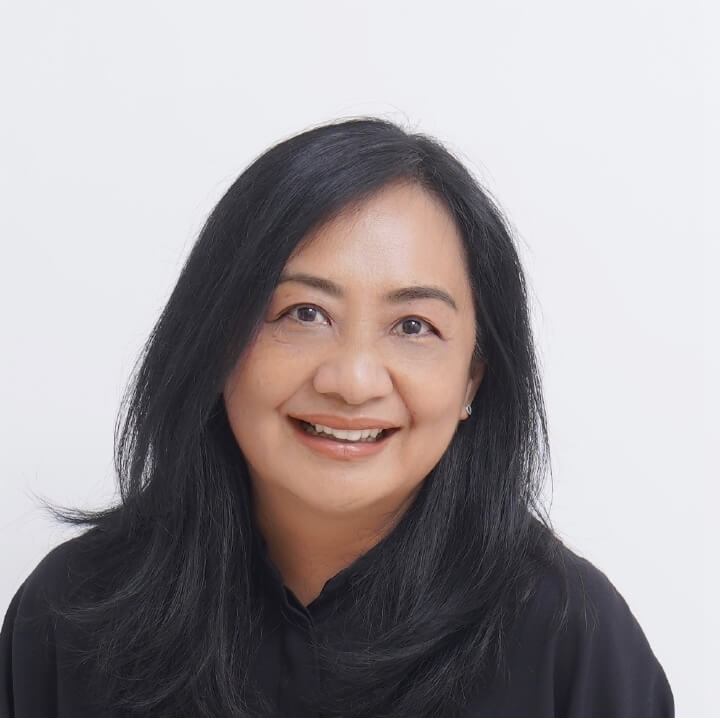
Right To Play Thailand Foundation Country Director Phunyanuch Pattanotai says it was not easy for the youth leaders to plan and implement projects in their communities. ”We are proud of all the youth who continued to utilise what they learned to create a greater change in their communities despite the challenge caused by the COVID-19,” she adds.
The ASEAN talked to three youth leaders who spearheaded sports projects in their respective communities after participating in the ASEAN S4DPL project.
“Autism Friendly Sports”
Nguyen Tu Uyen and Tran Van Ninh, Ho Chi Minh, Viet Nam
This initiative strengthened, empowered, and promoted the active participation of children with autism (CWA) in adapted sports and sport-friendly competitions. Nguyen Tu Uyen and Tran Van Ninh held a seminar for parents and teachers about the importance of sports for kids with developmental and intellectual disabilities.
“Almost all Vietnamese still don’t really understand autism, so they don’t have the right insights for these children. And because of this reason, children with autism don’t have many places to learn and play, although there are some organisations, not many parents know about them,” says Nguyen Tu Uyen.
“At first, both the children and the parents are still a little reserved with us. We tried to approach them by encouraging them while playing, high-five with them after each small exercise with the coach. And after a while, the children started to respond to us with their real smiles and hugs; some of them are still not speaking clearly but trying their best to say “Thank you” to us, and that was the most memorable moment for me.
“It was a journey of emotion when I was working with this project. At first, it was stress and worry because of COVID-19 we have to delay the date a few times and because we are afraid of not doing and preparing well enough for the children. Next is feeling grateful because of all the support from many places.
“With the “Autism Friendly Sport Funshop” I hope that we can introduce many more adapted sports to the children, more professional sports coaches I can connect to help the autism children learn and play sports in a professional way to create more playgrounds for them.”
“Sports Field”
Yadanar Oo, Mesot, Thailand
Twenty-two-year-old Yadanar Oo was born in Thailand to parents who were originally from Myanmar. Her adoptive parents founded a migrant learning centre in Mesot, Thailand. Yadanar has lived all her life in the boarding school, where she always wished there could be a playground. After joining an ASEAN S4PDL workshop, she raised more funds and enlisted other students and a teacher to build a sports field. In December 2020, she took on another project and built a playground for her school and community. Yadanar has bigger dreams of getting a university degree in economics and politics and working to uplift her migrant community.
“My migrant school is inside the town, so they cannot go out. We didn’t have a ground for football or basketball, so we don’t have that kind of activity.
“In government or private schools, they have playgrounds, sports fields. I know very well that migrant students want to do those activities because when I was young, I also imagined I wanted a school like this, so, I wanted to do this for them. Now the school has become more attractive for them to come and learn.
“When I got support from ASEAN, I started to build a sports field. On that sports field, we can play volleyball, basketball, football and many other activities.
“Right To Play does not only teach sports but also give life skills, leadership skills. So, through the workshop, we also give them the same. Even in our community, when we do a presentation, no one will be interested if we do not put some play in it. That’s why sports and play are very important.
” I built a playground with a lot of different materials. I built it at the school, so students who live around here, at night they can always come and play. I feel that what I did affects them, and that makes me feel happy. Even if they’re kids, they can also feel stress from the COVID-19 pandemic. So, if they come to play and they feel happy, they can release their stress, at least just for a little bit.”
“Boys Peace Camp”
Chin Kok Soon, Harsimar Kuar, Tan Xin Guan, Kuala Lumpur, Malaysia
Chin Kok Soon, Harsimar Kuar and Tan Xin Guan wanted to create a safe place to play for migrant children living in Malaysia. The concept of Boys Peace Camp was to instil peace education in underprivileged youth. Our focus was to improve their sportsmanship, teach them about promoting peace, understanding cultural differences, and breaking racial barriers.
“To fulfil this objective, our first objective was to instil decent character in them. This is important to educate the youth to think rationally and critically in the heat of the moment.
“We want to educate them that winning is not everything. There is more than that. The main thing is what they learn and do during the game. We use sports to educate them with values like; build patience, increase awareness of surroundings, building trust, learning to communicate, respecting each other, working together, building self-confidence, and have them reflect on themselves.
“All of these values do not apply only in sports but throughout their lifetime. These values are essential for the youth to survive in this modern society. Hence, we decide to use sports to educate the youth with various activities about instilling a decent character.
“Sadly, during the project, Malaysia was hit by the COVID-19 pandemic, and the Malaysian Government has announced all outdoor activities to be halted immediately. Despite ending Peace Camp earlier but we managed to cover the main objective we had set.
“No child wants to be born poor. Our greatest concerns are children without education and their childhood being robbed from them due to poverty. We have seen children and families who are victims of wars, racial and political persecution. They flee from their homeland to seek refuge in another unfamiliar country and unfortunately, they have very little privilege and rights while residing in another country. Globally, there are still the underprivileged and marginalised. They are the ones left behind and it saddens us seeing children not being school at the age of early years, primary or secondary. With the Boys Peace Camp and Faisal Cup, we will continue to raise funds, bring in more partners and initiate more collaboration to ensure the activity is sustainable.
“What was most memorable throughout the project was seeing the youth participating eagerly, enjoying the activities and learning valuable skills. That really put smiles on our faces.”




